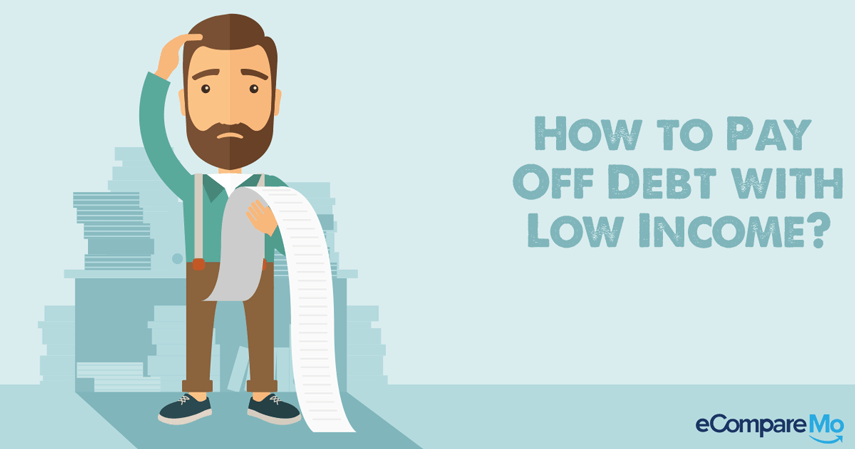Pay Off Debt With Low Income In 5 Steps
3 min readGetting out of debt is something we should do as quickly as possible whenever we start to get one; after all, it is our responsibility as debtors to pay our debts in time after getting money in the most convenient way possible. While everyone can get a loan quickly—as long as they can meet the requirements—the hardest part of getting a loan is paying it in full and on time. What if you are having a bad time settling your expenses on top of your debts? How are you supposed to pay them without getting behind on payments? Here are the steps on how you can settle your dues with little income.

1. Reassess your expenses first
When you feel like your monthly income isn’t enough to cover for your expenses as well as your debt, the first thing you always have to do is to give your finances a second good hard look. To make sure that every peso goes where it should be, find out if you have expenses that are undermining your capability to delegate the right amount to your debt. For instance, if you see that your budgeting technique is flawed because there may be unnecessary expenses that eat a significant portion your income, you need to weigh if these are really necessary or just expenses not necessary to your everyday survival.
2. Rework your budget
Once you’ve identified the potential unnecessary expenses and carefully assessed their status, it’s now time to give your budget a complete overhaul. While you may think that reworking your budget only requires you to rule out expenses that hurt your monthly money, it requires you to become more active and conscious in your spending. If you think that you’re spending too much on food, you may want to cut down your costs a little and work around a limited budget. This way, you can create a bigger allowance for your debts later on.
3. Become more active saving your resources
Do you always end up with so much waste after every meal? In case you missed it, wasted food is also money wasted—whether it is due to spoilage or just leftovers, it still costs you money even if you think you’ve satiated your hunger. Do you leave you lights open or your faucet running even when not in use? This will reflect on your electricity bill next month. If you are more proactive when it comes to your resources, you can have more money to use for your debt payment.
4. Consider an additional source of income
If you think that having low income isn’t enough to cover your monthly amortization and you’ve done everything to reduce your living costs, you may want to find ways to earn extra money. You can either take another job on the side, or try to profit from things you can do while you work like selling snacks or other things. While it may require you to put an extra effort to earn more, it’s worth it because you can settle your debts without the need to pay for penalties or additional interests.
5. When all else fails, talk to your bank
While banks may be stringent when it comes to payments—especially that each missed installment means more money for them—you can always talk to them and ask them to set better terms for you. If you can persuade them, they give you better terms, lower interests, and other extensions to help you deal with your debt. Remember, if you’re in a rut with your payments, maybe a simple trip to the bank can help you get out. But keep in mind that talking to them doesn’t erase your debts.
Paying off your debt with low income may be difficult, but with discipline and the right money-handling ways, you can pay your dues in no time.
